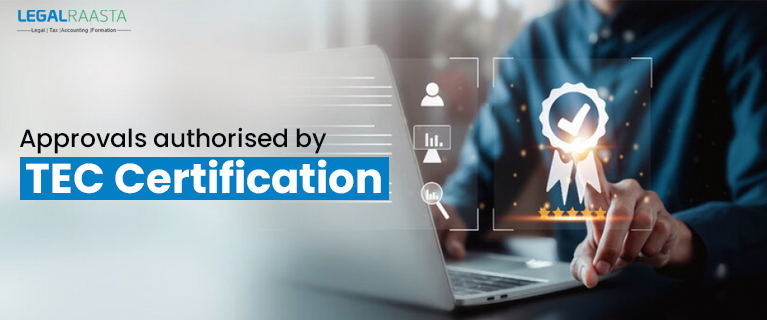Decoding TEC Certification Costs in India
Telecommunication Equipment Certification (TEC) is a crucial requirement for manufacturers and importers of telecom equipment in India. To ensure compliance with technical and safety standards, obtaining TEC certification is essential. However, it is equally important to understand the associated costs to plan and budget effectively. In this blog, we will discuss the points specific to TEC certification costs in India. By considering these factors, manufacturers can navigate the certification process smoothly while ensuring financial feasibility.
Read also this -: What is the TEC Certificate Number1. Application Fee
The TEC certification process begins with an application fee. This fee covers the initial evaluation and processing of the certification request. The amount varies depending on the type and complexity of the telecom equipment being certified. It is important to determine the application fee upfront to allocate the necessary resources.
2. Testing Costs
TEC certification requires compliance testing of the telecom equipment in accredited laboratories. The testing costs include charges for test samples, test setup, test duration, and expert evaluation. The number of tests and their complexity influence the overall testing costs. Manufacturers should consider these expenses while budgeting for TEC certification.
3. Documentation and Consultation
Manufacturers need to prepare and submit comprehensive technical documentation as part of the TEC certification process. This includes test reports, design specifications, compliance statements, and other supporting documents. Engaging professional consultants who specialize in TEC certification can provide valuable guidance but may incur additional costs.
4. Renewal Fees
TEC certification is valid for a specific period, typically three years. After this period, manufacturers must renew their certification. Renewal fees are charged to ensure ongoing compliance with the latest standards and regulations. Manufacturers should factor in these recurring costs to maintain the validity of their TEC certification.
5. Pre-certification Testing
Before applying for TEC certification, manufacturers may opt for pre-certification testing to evaluate the compliance of their telecom equipment. This step helps identify any non-compliance issues and provides an opportunity to rectify them before the formal certification process. The costs associated with pre-certification testing should be considered as an investment in ensuring a smooth certification process.
6. Travel and Logistics
In some cases, manufacturers may need to transport their telecom equipment to accredited laboratories for testing. Travel and logistics costs, including packaging, shipping, and insurance, should be considered. Manufacturers located in remote areas or with limited access to accredited labs may need to allocate additional funds for transportation expenses.
7. Time-to-Market Considerations
TEC certification is a time-consuming process, and delayed time-to-market can impact business revenues. It is crucial to consider the costs associated with potential delays and factor them into the overall certification costs. Efficient project management and coordination with testing labs and certification bodies can help minimize time-to-market and associated costs.
8. Post-Certification Requirements
After obtaining TEC certification, manufacturers must comply with post-certification requirements, such as labelling, documentation updates, and periodic audits. These requirements may involve additional costs. Manufacturers should plan for these expenses to ensure ongoing compliance and avoid any penalties or certification revocations.
Read also this -: Approvals Authorised by TEC CertificationConclusion
Understanding the specific points related to TEC certification costs in India is essential for manufacturers and importers of telecom equipment. By considering factors such as application fees, testing costs, documentation, and renewal fees, manufacturers can effectively budget for the certification process. Additionally, accounting for pre-certification testing, travel and logistics, time-to-market considerations, and post-certification requirements ensures a smoother and more cost-effective certification journey. By aligning their resources and finances accordingly, manufacturers can navigate the TEC certification process efficiently and position themselves for success in the Indian telecom market.




Comments
Post a Comment